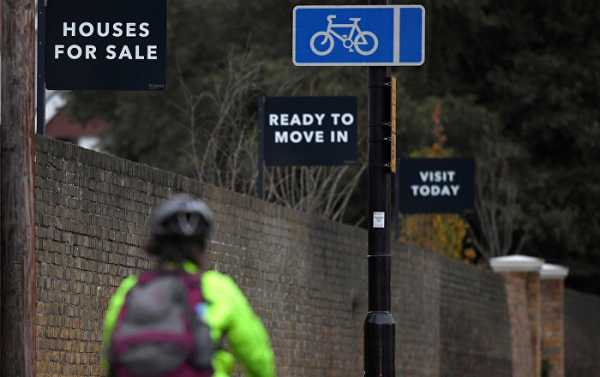
British home prices are continuing to decline amid Brexit fears and a tepid resurgence in domestic demand, but the affordability crunch that had rendered homeownership an elusive dream for most Britons appears to gradually be fading.
Kristian Rouz — The decline in price of Britain’s residential properties has accelerated this outgoing month, a new report found, as many EU owners have opted to liquidate their assets amid their uncertain status in post-Brexit Britain.
The additional supply in the UK’s housing market emerged after top British ministers warned of a possible ‘no deal’ Brexit, rendering British safe haven assets less attractive in the face of the looming higher taxes on non-resident property owners.
The average price of UK homes dropped 2.3 percent this month, according to data from the property website Rightmove. In London alone, the decline was even greater, at 3.1 percent, as the British capital has been the most attractive property market in the eyes of foreign buyers during the past two decades.
The British housing market has been an attractive destination for international investors, who sought to park their cash in a safe environment during Britain’s EU years.
Now, however, as Foreign Secretary Jeremy Hunt has said a ‘no deal’ Brexit is a possibility, this is much less so — and while property owner are sounding the alarm, British buyers are utterly satisfied with the somewhat alleviated affordability concerns.
The average asking price has dropped by £7,000 so far this month, to £301,973, Rightmove said.
“Sellers who come to the market in the peak holiday season often have a pressing need to sell and price down accordingly,” Miles Shipside of Rightmove said.
However, he added that “more substantial discounts are… required to tempt warier buyers.”
The decline in prices comes as the steepest on the record since Rightmove started monitoring home value fluctuations back in 2001.
What some have called the British housing bubble appears to be deflating gradually, erasing the risks of a sudden bust after three decades of uninterrupted expansion.
“The market started its most recent cyclical price upturn in 2010, and since then the average price of property coming to market has gone up by 32 percent, stretching buyer affordability,” Shipside said.
While the majority of properties in question are high-end estates and expensive projects, the decline in housing values is expected to affect average properties as well.
This comes as encouraging news for the British homebuyers, as the UK’s housing market is gradually returning to normalcy — houses are expected to be bought by everyday Britons for the purpose of actually living there, rather than parking overseas capital in uninhabited homes.
However, rising borrowing costs and tepid wage inflation might contain the domestic demand for properties for several months, until a further expected decline in property values evening out with effective demand.
“With lackluster average wage growth, more buyers are bumping up against the tighter lending criteria brought in four years ago following the Mortgage Market Review, which was intended to prevent another boom and bust cycle,” Shipside said.
At this point, the UK’s property prices are still above their levels one year ago. The average asking price across the country is 1.1 percent up from August 2017, while in London prices have actually decreased year-on-year as well — by 1.2 percent to £609,205.
Meantime, the price for a generic two-bedroom apartment has dropped to its lowest level since July 2015, but London property value remains elevated, at 2.5 times above the national average.
Sourse: sputniknews.com






